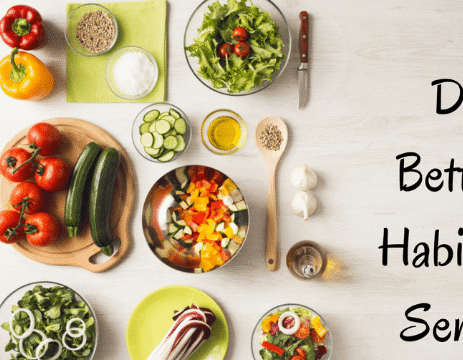In today’s fast-paced world, food often becomes an afterthought — a quick bite between meetings, a snack during a late-night binge, or a reward for a stressful day. But developing a healthy relationship with food can help you feel more energized, balanced, and connected to your body. Here’s how to cultivate mindful habits and foster a more positive connection with what you eat.
1. Ditch the “Good” vs. “Bad” Labels
Categorizing food as either good or bad can lead to guilt, shame, or binge eating. Instead, try to see food as nourishment. Some foods offer more nutrients, while others offer joy, comfort, or cultural significance — and that’s okay.
Tip: Practice saying “all foods fit in my lifestyle” to create space for flexibility and balance.
2. Tune Into Your Hunger and Fullness Cues
Your body has built-in signals to guide you — but they often get drowned out by external rules or distractions. Pause before and after meals to check in with your hunger and fullness levels.
Try This: Use a scale from 1 (very hungry) to 10 (uncomfortably full) to help you eat mindfully.
3. Practice Mindful Eating
Mindful eating is about being present during meals. It can help you enjoy your food more and avoid overeating.
-
Eat without distractions like phones or TV.
-
Notice the flavors, textures, and smells of your food.
-
Chew slowly and savor each bite.
Did You Know? Studies show mindful eating may help reduce overeating and increase satisfaction after meals.
4. Honor Your Cravings Without Judgment
Cravings are normal. Depriving yourself often leads to more intense cravings later. Instead, allow yourself to enjoy a treat in moderation — without guilt.
Pro Tip: Ask yourself, “What am I truly craving right now — flavor, comfort, or energy?”
5. Respect Your Body
Bodies come in all shapes and sizes. Treating your body with kindness — regardless of its current size — can help you make more supportive choices.
Affirmation: “I nourish my body out of respect, not punishment.”
6. Stay Curious, Not Critical
Notice how different foods make you feel — not in terms of weight or appearance, but energy, focus, or digestion. Let curiosity guide you instead of judgment.
Example: “I feel more alert when I start my day with protein and fiber.”
7. Seek Support When Needed
If you’re struggling with disordered eating habits or negative food thoughts, consider reaching out to a registered dietitian or therapist who specializes in intuitive eating or mindful nutrition.
Conclusion
Building a healthy relationship with food is a journey, not a destination. By approaching food with curiosity, compassion, and mindfulness, you can foster habits that support your physical and emotional well-being for the long term.
Keywords (SEO-friendly and AdSense-safe):
-
healthy eating
-
mindful eating tips
-
how to improve your relationship with food
-
food freedom
-
intuitive eating habits


